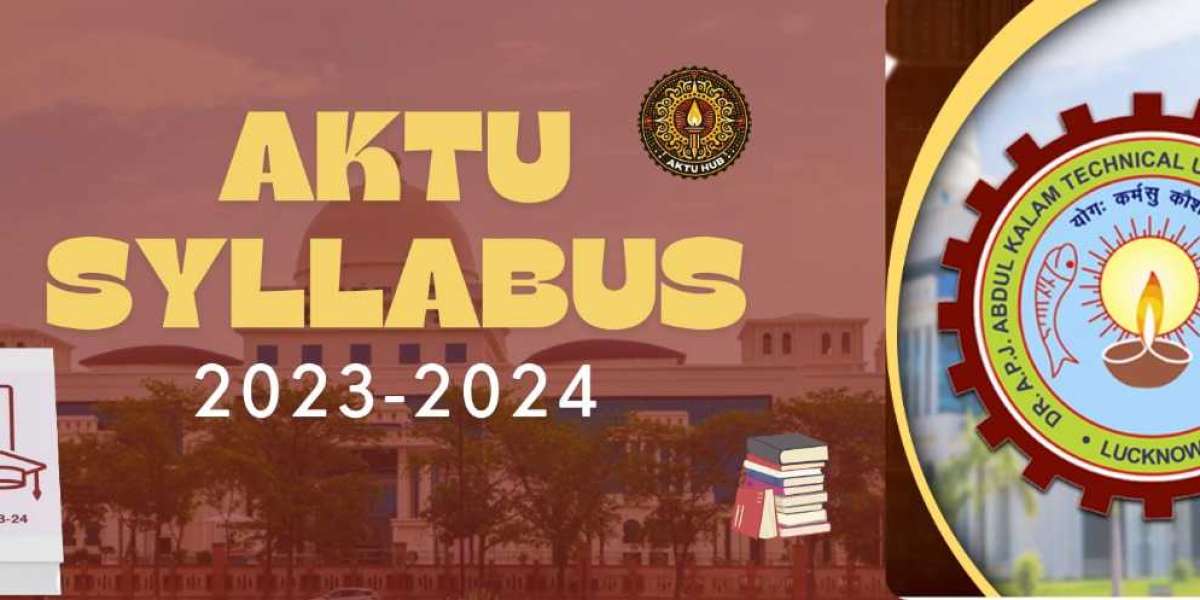The AKTU syllabus for 2nd year engineering programs is structured to enhance technical competence and hands-on skills, which are critical for shaping industry-ready graduates. Beyond theoretical knowledge, the curriculum emphasizes a practical approach to problem-solving, enabling students to apply concepts in real-world scenarios. This article delves into the key aspects of the practical component of the AKTU syllabus 2nd year, highlighting its significance and how it prepares students for future challenges. Presented by Aktu Hub, your trusted source for AKTU updates and academic guidance.
1. Overview of AKTU Syllabus 2nd Year
The second year is a pivotal phase in an engineering student's academic journey, where the foundation laid in the first year is further built upon. The AKTU syllabus 2nd year introduces specialized subjects tailored to each engineering branch, alongside mandatory core subjects. A significant focus is placed on practical learning through laboratory sessions, workshops, and projects.
Key highlights include:
- Branch-specific practicals: Practical components are tailored to different streams like Computer Science, Mechanical, Electrical, Civil, and Electronics Engineering.
- Interdisciplinary labs: Many courses include elements that encourage collaboration across disciplines, fostering innovative thinking.
- Project-based learning: Mini-projects and assignments are introduced to help students develop research and teamwork skills.
2. Importance of Practical Learning in the Syllabus
The practical component in the AKTU syllabus 2nd year serves multiple purposes:
- Skill Development: Hands-on activities in laboratories allow students to gain familiarity with tools, software, and technologies used in their respective fields.
- Concept Application: Practical exercises bridge the gap between theoretical concepts and their real-world applications, fostering deeper understanding.
- Problem-Solving Ability: By working on mini-projects and case studies, students learn to approach problems methodically, a critical skill in any engineering career.
3. Key Practical Components Across Major Streams
a) Computer Science Engineering (CSE)
In CSE, the practical sessions focus on coding, debugging, and software development. Students are introduced to:
- Data Structures Lab: Experiments to implement algorithms for sorting, searching, and data organization.
- Database Management Systems Lab: Hands-on experience with SQL queries, database design, and management.
- Object-Oriented Programming (OOP) Lab: Projects to build small-scale applications using languages like Java or Python.
b) Mechanical Engineering
Mechanical Engineering emphasizes real-world mechanical systems:
- Thermodynamics Lab: Experiments with heat engines and energy conversion systems.
- Fluid Mechanics Lab: Understanding fluid behavior in various conditions.
- Workshop Practice: Developing skills in machining, welding, and assembly.
c) Electrical Engineering
For Electrical Engineering, practical learning focuses on:
- Electrical Machines Lab: Testing motors, transformers, and generators.
- Control Systems Lab: Simulating and designing control systems for dynamic models.
- Circuit Theory Lab: Building and analyzing electrical circuits.
d) Civil Engineering
Civil Engineering labs emphasize material properties and environmental systems:
- Surveying Lab: Training in land measurement techniques using modern tools like total stations.
- Building Materials Lab: Testing materials such as concrete, steel, and bricks.
- Environmental Engineering Lab: Water and air quality testing procedures.
e) Electronics and Communication Engineering
ECE labs explore electronic devices and communication systems:
- Digital Electronics Lab: Designing logic circuits and implementing them using ICs.
- Signals and Systems Lab: Simulation of signal processing using software tools.
- Microprocessors Lab: Programming microcontrollers for automation tasks.
4. Integration of Modern Tools and Technologies
One of the standout features of the AKTU syllabus 2nd year is the incorporation of modern tools to enhance practical learning. For instance:
- Simulation Software: Students use tools like MATLAB, AutoCAD, and SolidWorks to simulate real-world scenarios.
- Coding Platforms: Integrated Development Environments (IDEs) like Eclipse and Visual Studio are employed for software development tasks.
- Industry Equipment: In mechanical and electrical labs, students work on advanced machinery and instruments that replicate industrial environments.
5. Challenges Faced by Students
While the practical approach is beneficial, it is not without challenges:
- Resource Limitations: Not all colleges affiliated with AKTU have access to state-of-the-art labs and tools, leading to inconsistent learning experiences.
- Time Constraints: The packed schedule often leaves students with little time to explore concepts beyond the curriculum.
- Skill Gaps: Some students may struggle to keep up with the technical demands of practical sessions, requiring additional guidance.
6. Solutions and Support from Aktu Hub
At Aktu Hub, we aim to bridge the gap between curriculum expectations and student needs by providing:
- Study Guides: Simplified guides for experiments and lab activities.
- Video Tutorials: Step-by-step demonstrations of key practical experiments.
- Industry Insights: Articles on how lab work connects to real-world applications.
- Discussion Forums: A platform for students to seek help and share knowledge.
7. How Practical Learning Prepares Students for the Future
The practical elements of the AKTU syllabus 2nd year are crucial for career readiness:
- Job Market Relevance: Employers value candidates with hands-on experience in tools and technologies.
- Innovation and Research: Mini-projects lay the groundwork for final-year projects, encouraging students to pursue innovation.
- Confidence Building: Practical exposure boosts students' confidence in handling real-world challenges.
8. Conclusion
The practical component of the AKTU syllabus 2nd year plays a vital role in shaping competent and confident engineers. It bridges theoretical knowledge with real-world applications, equipping students with the skills needed for a successful career. While challenges exist, initiatives like those by Aktu Hub provide invaluable support, helping students navigate the syllabus effectively.
For more insights into the AKTU syllabus and related resources, visit Aktu Hub, your trusted academic companion.













